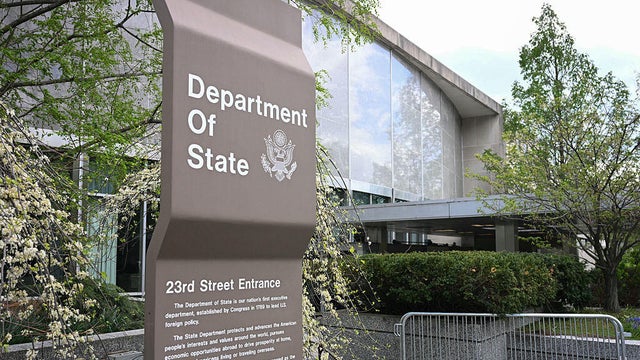

No response returned

The has asked some laid-off staff if they could return to work temporarily, as the department grapples with a backlog of grants that has swelled to more than a billion dollars in the wake of hurdles set up by .
Multiple HHS officials, who were not authorized to speak to the press, said the laid-off staff asked to return to work include a handful of employees who managed grants in the department's Administration for Children and Families, or ACF. Around half of ACF's grants management staff have been laid off or left under the Trump administration, one official said.
An HHS spokesperson said that ACF has brought back to work "limited personnel to support the effective transition of operations" after its April layoffs, consistent with other parts of the department.
"Last week, ACF contacted a small number of grants management staff to inform them that they may be required to return to a work status to complete such transition activities, however no grants management staff have been returned to a work status at this time," the spokesperson said in a statement.
Delayed grants at ACF include money for residential services for , the and .
Funding has already lapsed for other programs funded elsewhere in . At the Health Resources and Services Administration, the of resources for providers who care for people with has been frozen, after funding ended June 30.
Within the ACF, one official described the plans as an "all hands on deck" sprint. Another said it would be "nearly impossible" to process grants in time, without cutting corners on the usual process set up to carefully review, negotiate and award the money.
Two officials said that the department was also weighing leaning on contractors and other staff to catch up on the backlog of grants.
Multiple HHS officials said they blamed a number of new bureaucratic hoops set up by the Trump administration for stalling progress on completing the grants by the end of the fiscal year, which requires that awards be made by September. Many of the grants are needed to continue ongoing work already previously funded by the federal government.
Many grants are now several months behind schedule, officials said, and have yet to be formally opened for applications.
In order to award grants in time, one official said that the usual monthslong period that organizations have to apply for funding could be shrunk to just two weeks.
"It is very difficult for programs to submit in that tiny time frame. They are putting applicants in a very, very hard spot," another official said.
Notices to open the grants for applications had stalled in a new grant review process set up by the Trump administration, which required officials across the department to send an email to an inbox staffed by DOGE asking for permission to post the opportunities.
In June, an HHS spokesperson described the inbox as part of the department-wide "Defend the Spend initiative" intended "to ensure that taxpayer dollars are being used effectively, transparently, and in alignment with this administration."
Officials within the department recently announced that the requirement to route notices through the new DOGE process was no longer in place. The Washington Post that the extra reviews were ending.
Within ACF, multiple officials said that some approvals had only recently begun to be handed down from the Trump administration for grants to be posted.
A request to simply issue continuations, effectively extending grant money awarded to previous recipients, was denied by White House officials.
The delays come as the Trump administration has issued an array of changes to the rules governing grants issued by the department. The changes include a move to reverse a policy that dates back to the Clinton administration exempting many federally funded grant recipients from using immigration status to determine eligibility for their programs.
It is unclear how or when that change will be implemented. For now, the department said it was not formally changing which programs will be required to actually verify immigration status, but said nothing in the law prohibits grant recipients from adding the requirement.
"Pending further regulation and/or guidance on the situations in which verification is required, all entities that are part of HHS's administration of public benefits should pay heed to the clear expressions of national policy described above," the department said detailing the change.





